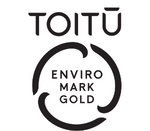Capital gains tax debate heating up: final recommendations out on Thursday

A capital gains tax would "add huge complexity to one of the world's simplest tax systems" according to an Auckland-based investment expert, but a chief banking economist disagrees and backs its introduction.
Paul Glass, executive chairman of Devon Funds Management, said he was initially in favour of a CGT "but the more you look into it the less appealing it is" so he now opposes it.
But Dominick Stephens, Westpac chief economist, backs a CGT: "It would improve housing affordability, lead to a higher rate of home ownership, help remove the heavy skew we have towards land-based investments, and eventually lead to a more diverse national balance sheet. It would also improve incentives to engage in paid work if income tax was reduced."
Final recommendations from the Tax Working Group will be out on Thursday and industry groups, lobbyists, iwi authorities, financial experts and institutions are gearing up to react.
The group, chaired by former finance minister Sir Michael Cullen, released an interim report last year which said it had "identified a list of asset classes that are not already subject to tax" and that included houses excluding the family home. "Capital gains from these assets would be included in the tax base," it said.
Glass said that superficially, CGT sounds fairer, would aim to rebalance the economy away from assets and towards incomes and capture windfall profits when realised like land re-zoning.
"But it would add huge complexity to what is currently one of the world's simplest tax systems, would result in a massive industry - as happens elsewhere in the world - advising on tax and minimisation structures, wouldn't bring in much additional money, would fall heavily on the upper-middle because the very wealthy are very good at structuring their affairs and would be a real productivity burden with every business decision needing to be weighed up with a CGT lens," Glass said.
The actual base for taxation would be small because the family home would most likely be exempt and that is about 42 per cent of New Zealanders' assets, Glass said.
"We already have a progressive tax system whereby 40 per cent of households pay no net tax after transfers. The top 3 per cent pay 24 per cent of all tax received. The top 10 per cent of households pay 70 per cent of net tax," Glass said.
Last week, EY global chairwoman of tax Kate Barton said New Zealand's lack of a capital gains tax was "unusual" although in the United States, the system was quite complex.
Stephens says property is more lightly taxed than other forms of investment. Treasury and the Inland Revenue estimate that property investors pay 29.4 per cent of their after-inflation returns in tax, whereas bank depositors and owners of dividend-paying shares pay 55.7 per cent.
Andrew King, NZ Property Investors Federation executive officer, opposes CGT, claiming property is "taxed more heavily than other assets with a higher marginal effective tax rate because of local government rates."
Kelvin Davidson, CoreLogic's senior property economist, says all eyes are on this Thursday.
It seems all but certain that CGT, excluding the family home will be recommended, but there are plenty of uncertainties around the exact form of it, he says.
"Will it be a traditional CGT, when you pay a one-off lump sum when you sell, or will it be an annual charge on the assumed/theoretical income that your asset is generating?" he wonders.
Perhaps the biggest debate is around the tax rate – a person's marginal income tax rate would seem to be a high rate to impose, he thinks.
"Whatever the details, the Government still has to accept the recommendations and then survive the next election, so none of this is a done deal. A CGT would certainly change the economics of property investment, dampening liquidity – after all, as an owner, you're going to be less inclined to sell if you face a CGT liability. We already have a capital gains tax, via the brightline test," Davidson said.
NB: This was originally posted by NZ Herald on 18 February 2019. The link to the original article can be found here.





